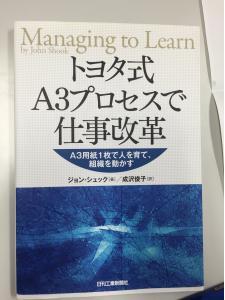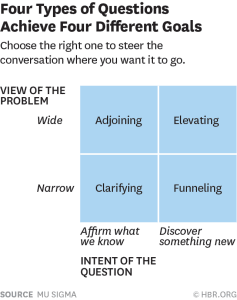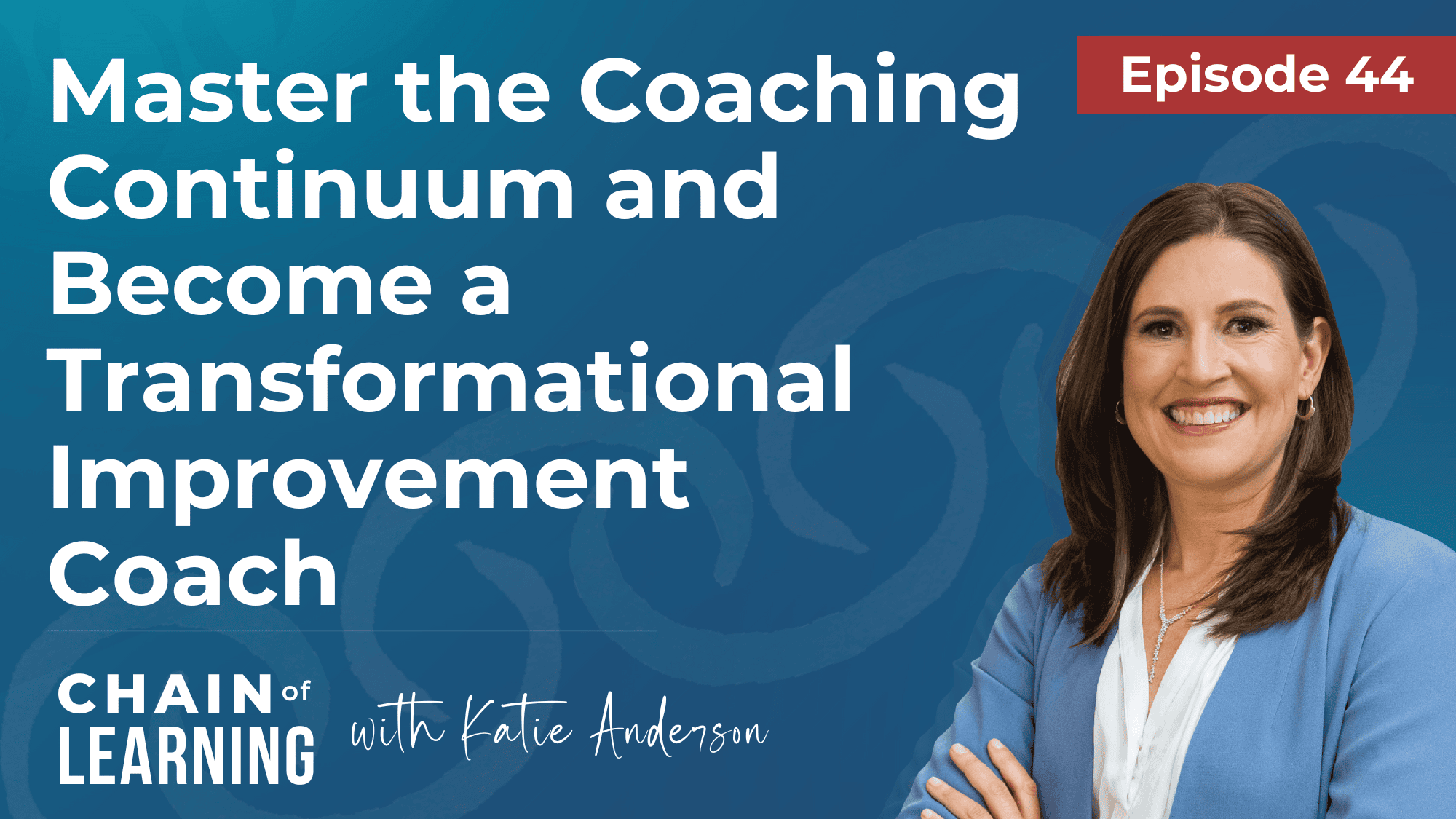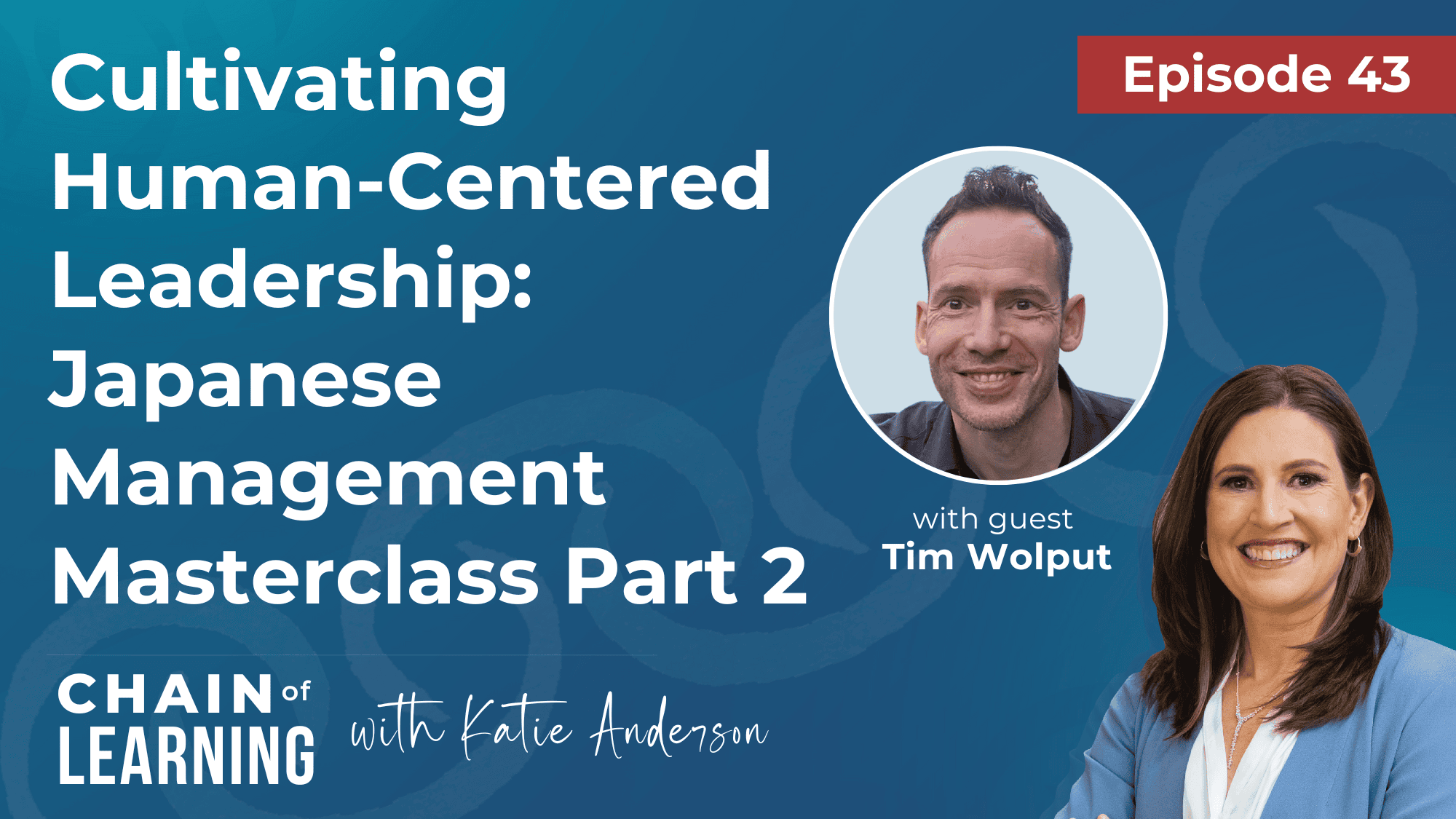How do we ask effective questions to support problem-solving thinking?
Asking better questions — and learning to “break the telling habit” has been a passion of mine since I deeply started studying and applying the art of better question-asking around 2010.
In fact, the importance of asking questions (the right questions) is one of the foundations of my work.
It’s one of the most popular topics here on my blog, in my custom learning programs for organizations, and my on-demand workshops (such as “Break the Telling Habit”) and guided coaching programs such as the Leading to Learn Accelerator.
Problem-Solving in Support of Developing People

If your organization is looking for support in developing your people as problem solvers, I recommend starting with focusing on A3 problem-solving thinking.
It’s applicable to all leaders and not only hones people’s ability to solve problems and learn by going to see what is actually happening, but also is a great way of deepening coaching skills of asking effective questions and listening.
A Chain of Learning: Managing to Learn and Leading to Learn
John Shook’s book “Managing to Learn” is the best book I’ve found to describe the A3 problem-solving process and is the basis for this A3 thinking class.
Fun fact — One of the models for the character of Sanderson, the manager / coach in the book, is Isao Yoshino — my friend and subject of my best-selling book Learning to Lead, Leading to Learn — who was one of Shook’s first managers at Toyota in Japan. Shook wrote the foreword to my book and shares reflections about how he learned to ask questions and think more
I learned so much about asking questions from my mentor Margie Hagene, who herself was mentored by John Shook. This is my chain of learning that I now link with you to as we learn together.
Effective Questions to Support Problem-Solving Thinking
There are many questions that we can ask in support of problem-solving, but they differ in the intention and outcome of problem solving ownership. I like to categorize questions into four categories, inspired by the work of Edgar Schein (whose books such as Humble Inquiry and Helping have been foundational in my learning about asking questions).
Humble Open Inquiry
The most effective questions are either those of pure humble inquiry which are questions for which you don’t have the answer. Humble inquiry questions keep the problem-solving thinking with the problem owner, not the person asking the question.
Diagnostic Inquiry
Other effective questions that can be asked, once the problem is clearly defined, are diagnostic questions.
Diagnostic inquiry questions help the problem solver discover cause and effect, more clearly define the root causes for the gap between the way things should be happening and the way they are happening today, and the link between proposed countermeasures and the problem.
Prompting Inquiry: WARNING!
 Beware of asking prompting questions.
Beware of asking prompting questions.
Prompting questions can take away the ownership of the thinking from the problem solver. These are closed-ended questions, multiple-choice questions, or your idea or suggestion with a question mark at the end.
These questions are like a wolf dressed up in sheep’s clothing — they are really your idea or suggestion with a question mark on it!
Process questions
It’s important to not just focus on solving the problem…but also to understand the process of solving the problem.
Good questions to ask during problem-solving coaching are not always related to the problem at hand, but to the human interaction. Process questions help us understand where we are in the problem-solving process or in the conversation.
If you are practicing asking more effective questions and wanting to improve, you could ask a process question such as “What question was most helpful to you to advance your thinking?”.
 Want to learn more about questions — get the guide!
Want to learn more about questions — get the guide!
If you don’t have it yet you can download my free guide “3 Tips to Break the ‘Telling Habit’”! You’ll learn more about the types of questions, and how to ask them so that you too can break your telling habit!
Asking the right questions is often about intention.
Get this resource to help you ask more effective questions today!
Examples of effective questions
Below are some of the examples of effective questions that participants in a two-day A3 Thinking and Coaching workshop I led many years ago. When coaching leaders to ask more effective questions, I like to capture real-time examples of questions being asked well.
What do you notice about these questions? (I’ll share some reflections below the image).
Examples of effective questions asked today to develop problem solving thinking in others. #lean #coaching @HCValue pic.twitter.com/aXzVhtI2bb
— Katie Anderson (@kbjanderson) August 19, 2015
Qualities of effective questions
Just like in the image above, the most effective questions to support problem-solving share many of the following qualities:
- Start with WHAT or HOW
- Are short
- Do not introduce a solution or idea
Additional categories of problem solving questions

An HBR article titled “Relearning the art of asking questions” highlights four categories of questions that can be used when problem solving:
- adjoining,
- elevating,
- clarifying and
- funneling.
This can be a helpful structure for you to think about how to ask questions to help the other person think more creatively (divergent thinking) or get more clarity (convergent thinking).
Of the questions that are listed above from the A3 thinking class, how would you categorized them based on the HBR article’s definition?
Intention and Practice Leads to Improvement
It’s always inspiring to see, with some dedicated thinking time and practice time, how much people’s skills in problem solving, question asking, and listening can advance.
For example, in this class over two days, people got at least 90-120 minutes to work through a problem they own, and then practice 3-4 sessions of “catchball” (asking and receiving questions) with others as both the problem owner and the coach.
Their questions are dramatically improved on the second day with just some focused practice (see image of questions above)!
This is the same structure of practice that you can learn when you join my self-paced “Breaking the ‘Telling Habit’” workshop, and unlock your team’s potential by discovering how to ask more effective questions. You can take the class at any time, at your own pace.
Additional resources
To learn more tips from me about asking effective questions, listening, and coaching for problem-solving, check out these additional articles:
- “Leading Daily Improvement: Creating New Habits and Practices to Support Continuous Improvement”
- “When to ‘A3’: 3 Problem-Solving Tools to Match the Complexity of Your Problem”
- How to Ask Problem-Solving Questions
- “How to Get Out of the Habit of Telling”
- “Be More Than a Coach, be a Coach That Listens”.
- How to ask questions even if you already know “the answer”.
What is your experience?
How have you practiced becoming a better problem solver or a better coach in support of problem solving? What have you found helpful in asking more effective questions?


 Want to learn more about questions — get the guide!
Want to learn more about questions — get the guide!








